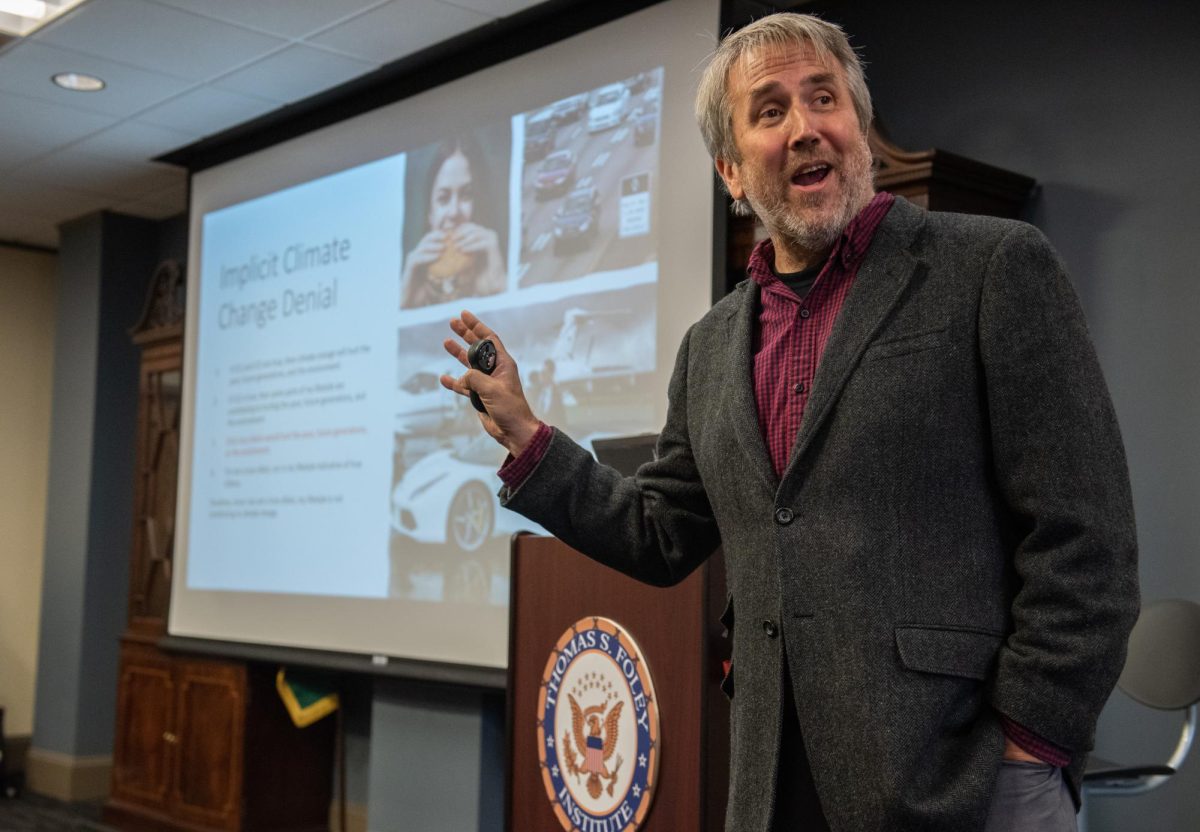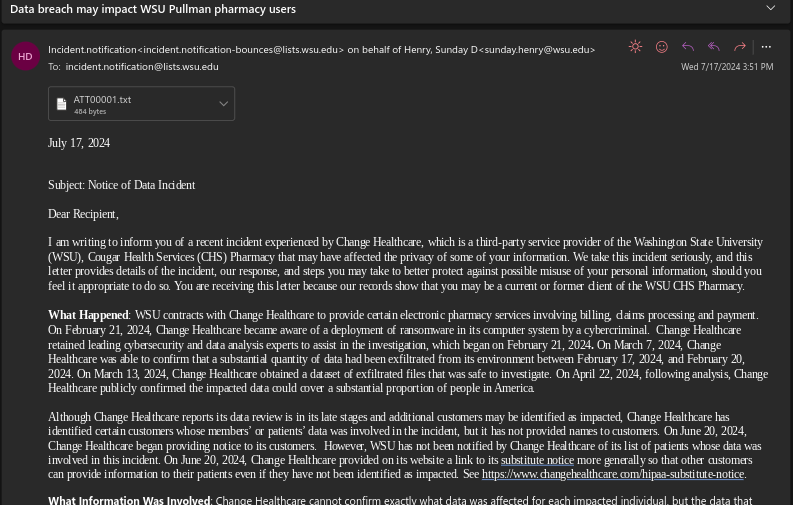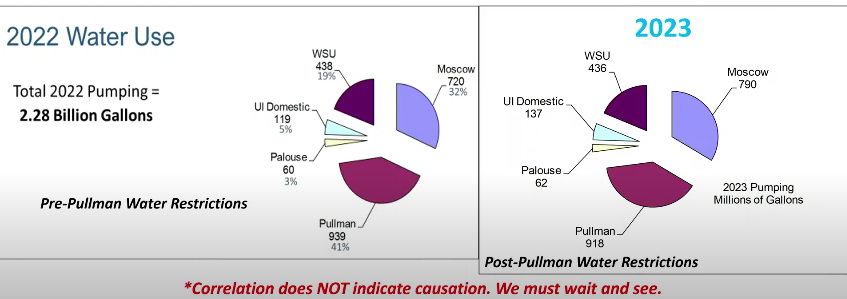Philosophy associate professor Michael Goldsby presented on the logic behind climate denial Thursday at the Foley Institute.
CC1, CC2 and CC3 are three basic claims about climate change supported by the scientific community and those who know climate change to be real, Goldsby said.
“You believe the Global Mean Surface Temperature is increasing and will continue to do so without intervention, largely as a result of more carbon in our atmosphere [CC1],” he said. “You also believe that one of the causes, or the cause, of the rise of carbon and therefore the rise of GMST is human activity [CC2]. You also believe that if the GMST reaches a certain level, it will be bad [CC3]. It will challenge food, energy, and water security among other things. We also know it’s probably going to hurt the poor and the future generations disproportionately.”
The belief that the previous three claims are false and not scientific fact is climate denial, Goldsby said. This denial of climate change is lethal and allows for politics to get in the way of climate action.
One commonly believed reason why climate denial occurs is a lack of information among deniers, he said. A 2015 study on whether climate change deniers have all the information showed a lack of information may not be the issue as there was little to no difference between those who thought climate change was caused by humans, nature, or that global warming does not occur at all.
“What this says to me is they’ve heard the climate scientists, they’ve got that information, and they say, ‘I hear what you’re selling but I’m not buying,’” he said.
Another reason why climate denial may occur is due to a lack of a sophisticated understanding of the scientific information, Goldsby said. However, the 2015 study found that those with a higher level of scientific knowledge tend to have an increased level of climate change denial.
Political beliefs and ideology also indicate whether one may deny climate change, as the study found that those whose political ideologies lean right tend to deny climate change more than those who lean left, Goldsby said. However, the Biden-Mansfield Maxim shows us why we should not politicize the issue any further as this will have further consequences, he said.
“I paraphrase it: ‘it’s ok to question another’s judgment, but don’t question their motives,’” he said. “What happens is you’re already dismissing the other side, and when you dismiss the other side, that’s going to entrench them in their position. If you write off everything they’re doing as politically motivated, they’re going to write you off as well.”
In order to further understand the logic behind theories of climate denial, elements of the philosophy of science can be applied to it as a “theory,” Goldsby said. The Duhem-Quine Thesis can be used for this.
“The thesis says a hypothesis by itself can’t actually make a testable prediction,” he said. “Instead, what’s needed is a variety of auxiliary assumptions.”
The Duhem-Quine Problem, which states that if an observation is false then either the hypothesis or one of the other assumptions should be rejected, can also be applied to this, Goldsby said. While the presence of an error is made clear, what exactly went wrong is unclear, he said.
“[Quine] made the claim that you could hold on to a theory come what may if you were willing to make enough changes in your auxiliary assumptions,” he said.
This explains the behavior of climate deniers, Goldsby said.
“[Climate change denial] is a hypothesis, it makes certain predictions. Maybe one of the predictions is we’re not going to have hotter summers, we’re not going to have more heat domes, we’re not going to have water shortages,” he said. “When you point this out to a climate denier, they say ‘Oh, I can explain this.’ They start changing some auxiliary assumptions.”
Implicit climate change denial is also something that raises many issues, Goldsby said. This is something that can affect those with certain lifestyles such as those who eat meat, drive cars, and/or travel by plane.
Those who make any one of these lifestyle choices may implicitly deny the effect these choices have on the environment to not feel like a villain, he said.
“This, I think, is driving climate change denial because believe it or not, it drives a minor climate change denial with all of you,” he said. “The problem is we’re vilifying [climate deniers], and when you vilify them, they’re going to double down on [climate change denial] and they’re going to become entrenched … Consider your interlocutors with a little more sympathy and compassion,” he said.













Jose Hozbee • Oct 29, 2023 at 12:29 pm
an associate philosophy professor? Are you serious: what would be less credible?